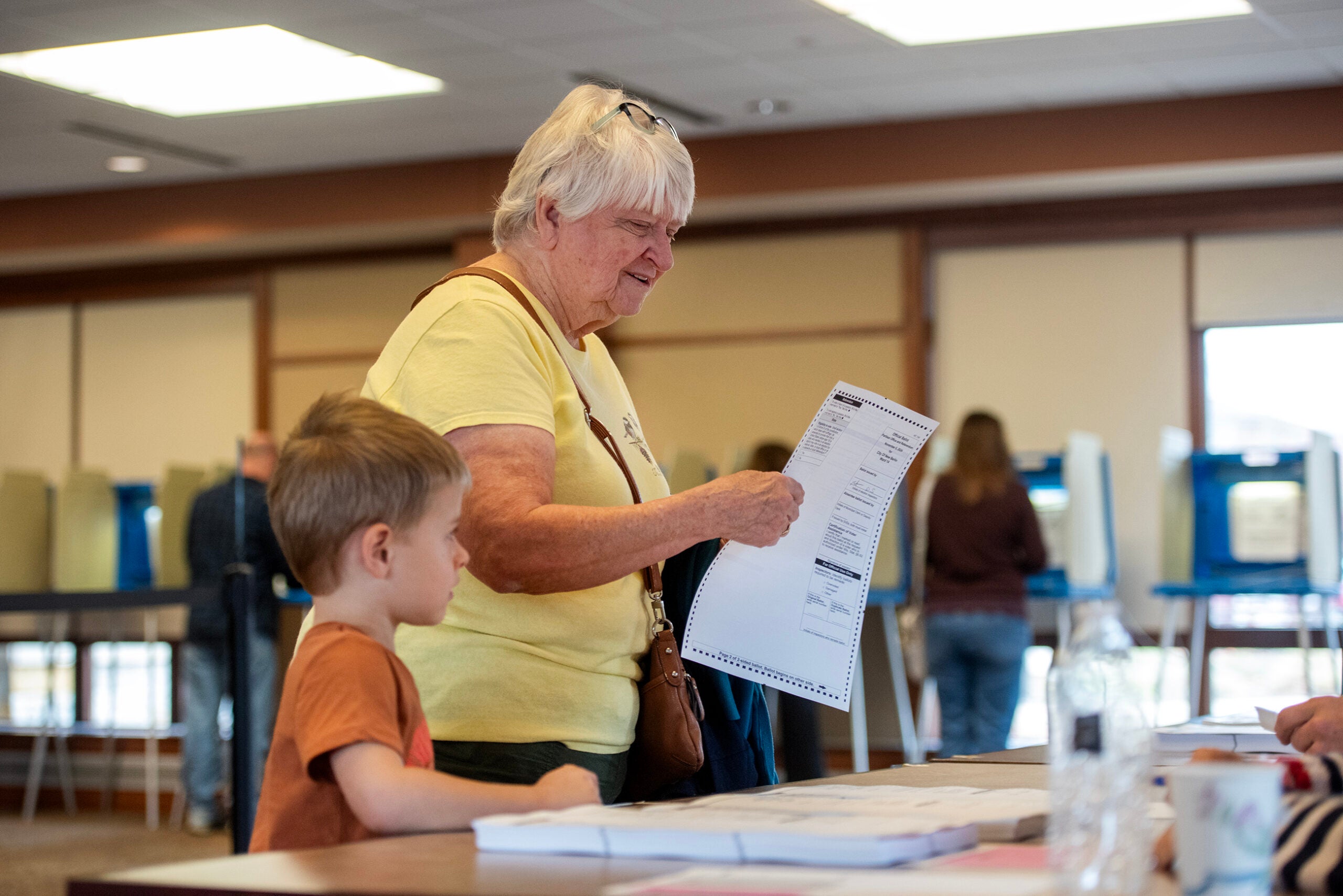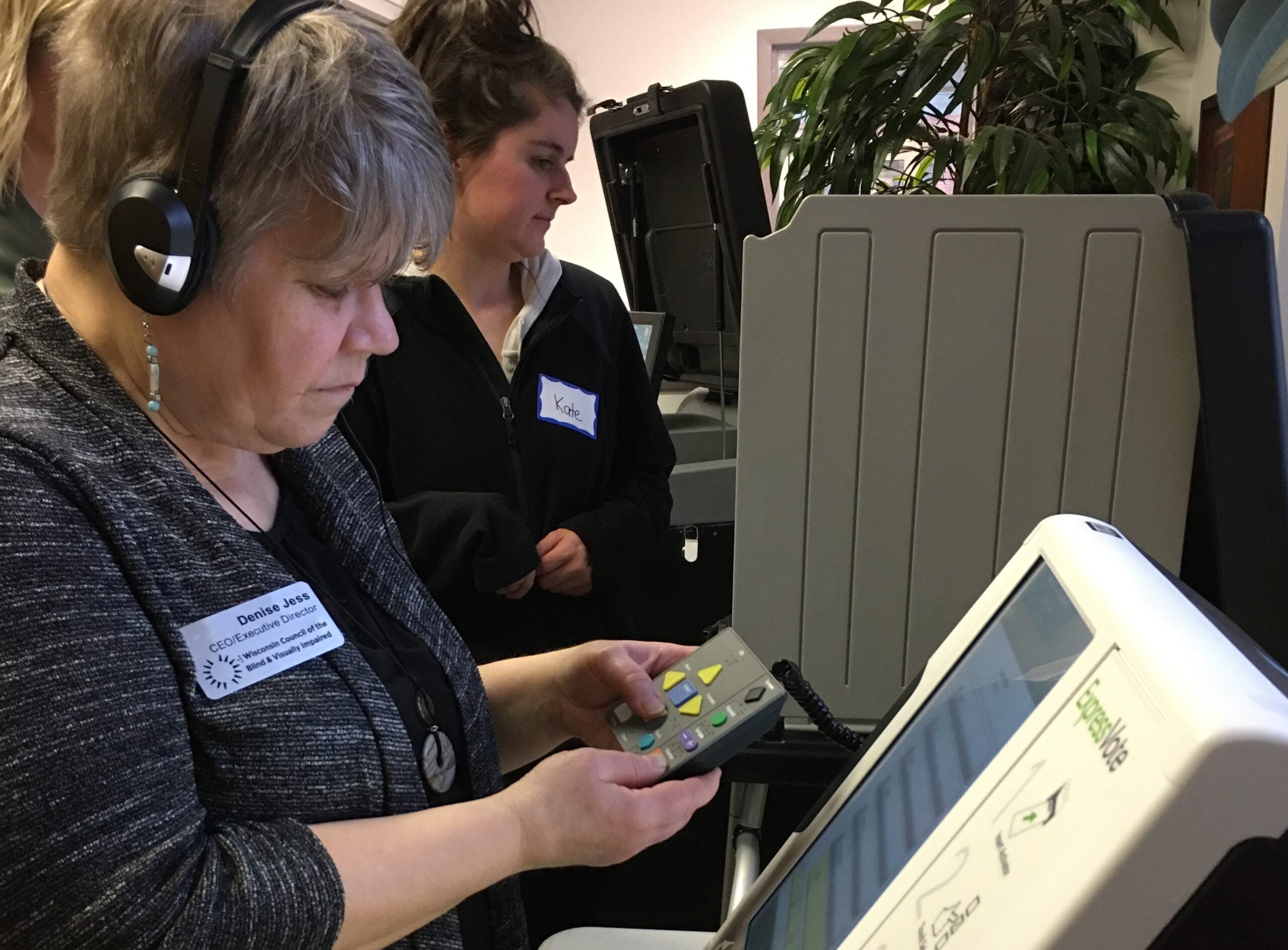The Wisconsin Elections Commission says small communities don’t need the state’s permission to stop using electronic voting machines, siding with a northwestern Wisconsin town that switched to hand-counted, paper ballots last year.
The WEC decision means municipalities still must make at least one electronic voting machine available at polling places for voters with disabilities.
In a 5-1 decision, commissioners dismissed a complaint alleging the Rusk County town of Thornapple broke state law when it switched from voting tabulators to hand-counted paper ballots for April and August elections in 2024.
The town’s decision spurred two complaints with the elections commission and a federal lawsuit from the U.S Department of Justice, which is currently being appealed.
During a meeting Tuesday, commission staff said they found no probable cause to believe Thornapple broke state law by discontinuing the use of electronic voting machines.
A complaint filed by the liberal firm Law Forward on behalf of a Thornapple resident argues a Wisconsin law enacted in 1995 requires communities with less than 7,500 residents that have used electronic tabulators in the past to keep using them in future elections unless the commission permits them to switch to hand-counted, paper ballots.
An analysis by commission attorneys pushed back on Law Forward’s interpretation and said clerks in smaller municipalities have the power to stop using voting machines whenever they like.
Wisconsin Elections Commission Chair Ann Jacobs, a Democrat, disagreed with the staff’s reading of state law and said a subsection of the law in question clearly says municipalities need to get permission to stop using electronic tabulators. She theorized that election administration grants from the WEC could be gamed by small municipalities.
“What you’re telling me is they can get a grant, get the equipment, sell it the next day, keep the money and never use it again, which, of course, is absurd,” Jacobs said. “But under this (WEC staff’s) reading, presumably they could do it, and I’m just troubled by this.”
News with a little more humanity
WPR’s “Wisconsin Today” newsletter keeps you connected to the state you love without feeling overwhelmed. No paywall. No agenda. No corporate filter.

Jacobs was alone in her objection. Commissioner Bob Spindell, a Republican, agreed with the agency’s staff.
“I think the whole key here is to allow the freedom for these many municipalities to be able to do what they need to do,” Spindell said.
Commissioner Don Millis, another Republican, said he is troubled by Thornapple’s actions, which he described as “certainly unwise.” He asked staff members how often small municipalities ask for permission to switch to hand-counted, paper ballots.
Wisconsin Elections Commission Administrator Meagan Wolfe said she’s only aware of a couple examples in which small communities ask not to use voting machines for things like school board elections.
“So, it does happen from time to time, and that gets reported out to the commission,” Wolfe said. “But in my best memory, I can only remember it being requested for very small elections.”

Thornapple must still provide accessible voting machine for those with disabilities
While Tuesday’s vote favored Thornapple, commission staff noted it doesn’t mean the town can hold elections without using any electronic voting equipment. That’s because a November order from the commission required Thornapple to use at least one accessible voting machine designed to assist residents with disabilities under the 2002 Help America Vote Act, or HAVA.
The act is also the subject of an ongoing lawsuit filed against Thornapple by the U.S. Department of Justice last year. In October, a federal judge ordered Thornapple to resume using at least one accessible voting machine for residents with disabilities. The DOJ’s Civil Rights Division posted election monitors in Thornapple to ensure the town complied with the judge’s ruling during the November general election.
Thornapple is appealing the federal ruling against it, claiming the definition of a “voter system” under HAVA doesn’t apply to it because their process of hand-counting ballots doesn’t use any electronic equipment.
Wisconsin Public Radio, © Copyright 2026, Board of Regents of the University of Wisconsin System and Wisconsin Educational Communications Board.





